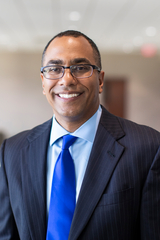By: David A. Grenardo, Professor of Law and Associate Director of the Holloran Center for Ethical Leadership in the Professions, University of St. Thomas School of Law
Neil Hamilton, who is the Holloran Professor of Law and Co-Director of the Holloran Center for Ethical Leadership in the Professions at the University of St. Thomas School of Law, has authored yet another influential and practical article on professional identity formation. Hamilton’s latest article, which is forthcoming in the Wake Forest Law Review, is a guide for law faculty and staff who want each student to build a tent of professional relationships – a professional network – who both support the student and trust the student to do the work of a lawyer. The importance of professional networks for work performance and career opportunities has been well-established in hundreds of empirical studies. In addition, a growing research literature is documenting that the creation of a professional network requires pro-active networking behaviors, which are defined as an individual’s efforts to develop and maintain professional relationships with others who can potentially provide assistance to them in their career or work.
For some students (and lawyers), “networking” with a clear purpose of strengthening support for the student’s professional goals feels inauthentic, impure, and perhaps even dirty. To avoid this negative connotation, Hamilton’s article uses “building a tent of professional relationships who support the student and trust the student to do the work of a lawyer.” This framing, in Hamilton’s experience, fits within the students’ natural understanding of the importance of social support for each person, including the student, and feels authentic and less instrumental to the students.
A link to Hamilton’s article can be found here.

David Grenardo is a Professor of Law and Associate Director of the Holloran Center for Ethical Leadership in the Professions at the University of St. Thomas School of Law.



